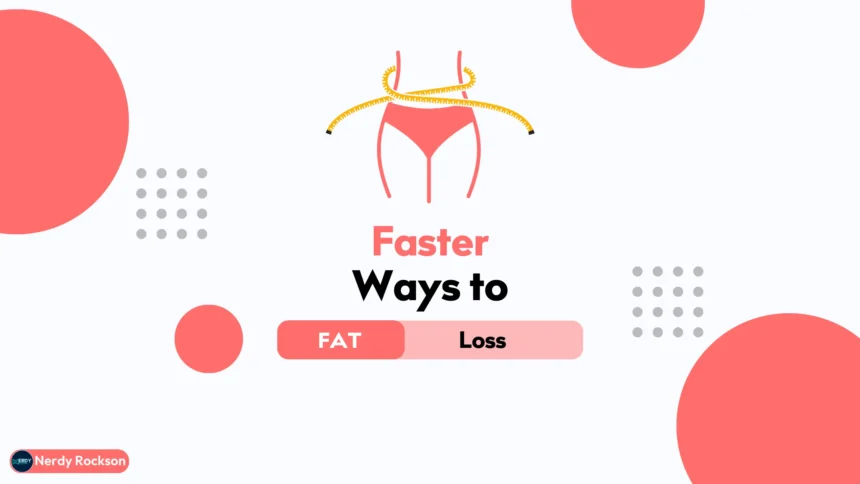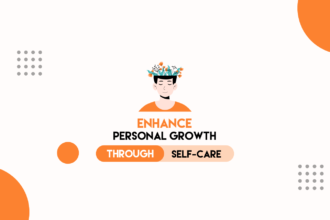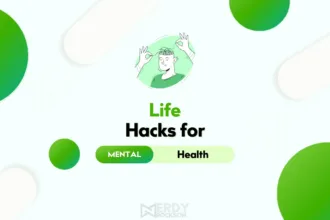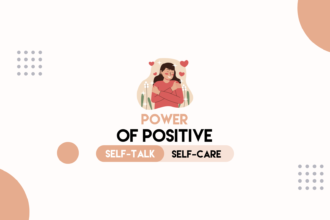Have you been trying to lose fat, but it seems like no matter how hard you try, nothing ever works? You’re not alone on this journey—a whopping 42.5% of all adults in the US are struggling with obesity, trying to find faster ways to fat loss. But hey, guess what? You’ve come to the right place because we’ve got some exciting news for you!
Indeed, there are proven and faster ways to fat loss that have been backed by sound research! A study published in the Journal of Obesity and Weight Loss Therapy suggests that a blend of diet, exercise, and the right frame of mind can speed up your fat loss journey.[1] But don’t worry, we’re not going just to drop a fact bomb here and leave you to figure it out. We’re going on this journey together, friend!
But be forewarned, no magic is happening over here—only pure hard work and consistent effort. By the end of this guide, we want to help you bookmark this page as your ultimate guide to faster ways to fat loss. After all, wouldn’t you want to be a part of the statistic showing that successful weight loss maintainers can sustain fat loss in more than a year?
In this article, we will delve into the 10 faster ways to fat loss. These aren’t just general clichés – these methods are backed by cutting-edge research and have demonstrated success in countless individuals. Now grab a cup of your favorite low-carb beverage, sit back, and get ready for a transformative journey.
Understanding Your Body
Appreciating the fine-tuned machine that is your body is the first step towards effective fat loss. This isn’t just about what you look like on the outside, but more importantly, what happens on a cellular level on the inside. Does it not amaze you how your body continually processes the food you eat, the air you breathe, and the physical activities you engage in to generate the energy you need?
So, what’s the key to unlock this understanding? Knowledge. The more facts you learn about your body, the better prepared you’ll be to make informed decisions about what you eat, how often you should exercise, and how much sleep you need. This understanding creates a strong foundation for the lifestyle changes needed to achieve fat loss.
How does this work? Let’s break it down:
- Metabolism: This is the crucial process where your body converts the food you eat into energy. A high metabolism rate fuels your body faster, which can help with fat loss. The process continues even when you’re at rest but at a slower pace. To increase your metabolic rate, try increasing your physical activity and incorporating more proteins into your diet.
- Nutrient Absorption: Not all foods are absorbed by your body in the same way. Some foods are easily digestible, while others require more energy, working your body harder. By understanding which foods benefit you most, you can guide your meal planning in the right direction. For instance, lean meats, whole grains, and vegetables are excellent choices for sustained energy and efficient absorption.
- Hormonal Balance: This plays a significant role in fat storage and weight gain. High stress can lead to hormone imbalance, which can affect your metabolism and fat storage. Sleep, balanced nutrition, regular exercise, and mindfulness are crucial steps to maintain healthy levels of hormones in your body.
Become attuned to your body’s language. Listen to those hunger cues and how different foods affect your energy levels and moods. Understanding your body is about learning to respect yourself enough to deliver the love and care it needs. Remember, a well-taken-care-of body will repay you with better health, increased energy, and the desired fat loss. So, aren’t you ready to start this learning adventure?
10 Faster Ways to Fat Loss
When it comes to effective fat loss, there is no singular approach to achieving stellar results. What’s the secret, you may ask? It’s a balanced combination of ways, methods, and techniques that speed up the process. Let’s dive into these proven, faster ways to fat loss!
1. Balanced Diet
Do you want to accelerate your progress toward fat loss goals? One pivotal component lies in the foundation of your diet. Why, you ask? Your food choices greatly influence your energy, bodily functions, and overall health, all of which affect your weight. So, what does a balanced diet look like?
The Harvard School of Public Health’s ‘Healthy Eating Plate’ provides a visual guide to creating a balanced meal. It emphasizes filling half your plate with fruits and vegetables, a quarter with whole grains, and the remaining quarter with lean protein. It also recommends healthy oils and plenty of water.[2]
Let’s simplify this concept. Keep in mind that there is no universal blueprint for the perfect diet — your balanced diet is unique to you. It considers aspects like your age, gender, activity level, and specific health objectives.
Integrate whole, unprocessed foods into your meals. What’s desirable about them? Here’s a hint: lean proteins, fruits, vegetables, whole grains, and healthy fats. They’re abundant in fiber, vitamins, minerals, and other vital nutrients.
- Fiber: Promotes digestion and satiety, potentially reducing excessive eating.
- Vitamins and Minerals: Essential for many body functions, including immunity, metabolism, and cellular repair.
- Lean Protein: Contributes to muscle repair and growth, consequently boosting your metabolism and fat-burning capability.
- Healthy Fats: Keeps you satiated and maintains your body’s hormone balance, vital for effective fat burning.
Keep in mind that moderation is paramount. Even healthy foods should be consumed in appropriate portions. Why is this crucial? Caloric control is the answer. Achieving a caloric deficit, where you consume fewer calories than your body burns, is crucial for successful fat loss.
How can a caloric deficit be achieved? Through mindful eating, which we’ll delve deeper into later. It involves consuming not only fewer but also nutrient-dense calories. This initiative fuels your body and supplies it with the energy it needs for optimal functionality, all while keeping hunger at manageable levels.
Isn’t it inspiring to know that your food choices significantly impact your fat loss journey? We believe it is! Embrace the potential on your plate and advance swiftly toward healthier fat loss!
2. Regular Exercise
Engaging in regular exercise isn’t just about staying fit – it’s also about maintaining a healthy body weight. So, you might be wondering, how much? It’s recommended that adults get at least 150 minutes of moderate aerobic activity (like brisk walking) or 75 minutes of vigorous activity (like running) each week, along with strength training exercises on 2 or more days.[3]
Exercise isn’t one-size-fits-all, though. The right mix for you depends on various factors such as your age, gender, current health status, and, of course, your goals. If your main aim is fat loss, a combination of cardiovascular exercise, resistance training, and flexibility exercises may present a perfect mix.
Key takeaway: Regular exercise can help burn calories, tone muscles, and maintain a healthy body weight, thus aiding in fat loss.
- Aerobic activities: Brisk walking, running, swimming, cycling, etc., get your heart pumping, contributing significantly to calorie burn.
- Resistance training: Strength-training exercises like lifting weights can help in building lean muscle mass, which inherently burns more calories than fat tissue – even while at rest!
- Flexibility exercises: Flexibility and balance exercises such as yoga can assist in muscle toning and core strengthening, promoting better body composition over time.
But before you dive headfirst into an intensive exercise routine, here’s a word of caution: make sure to pace yourself and don’t overdo it. Remember, every step forward, no matter how small, is still progress. Also, we urge you to consult a healthcare professional before undergoing any new physical regimen, as they can help structure a workout regime that is both safe and effective for you.
Lastly, add some variety to your exercise routine every so often to keep it interesting. This could involve swapping out certain exercises, altering your workout duration, or changing the intensity. Variety also helps to challenge your body in different ways, which can be beneficial for fat loss. Just remember, it’s not all about the quantity of exercise, but also the quality.
3. Adequate Sleep
Achieving fat loss is not just about the physical efforts you make, but it also involves nurturing your body’s need for rest. Did you know that sufficient sleep plays a crucial role in your weight loss journey? Well, it does!
When you get adequate sleep, your body can function at its best. It’s during this time that the body repairs, restores, and regenerates cells, optimizes hormonal function, and consolidates memory. Over time, these processes collectively contribute to more effective weight management.
| Benefits of Adequate Sleep |
|---|
| Enhances Metabolism |
| Maintains hormonal balance, including those controlling appetite |
| Boosts physical energy levels and cognitive performance |
| Improves emotional wellbeing and reduces stress |
So, how much sleep is enough? Most health authorities recommend between 7 and 9 hours of sleep per night for adults.[4]
Remember, when it comes to fat loss, every good decision counts – and that includes going to bed on time!
Failure to get adequate sleep can lead to increased appetite the following day since the body needs additional energy to stay awake. This often results in increased calorie consumption, undermining your weight loss efforts.
Again, it’s not just about the quantity but also the quality of sleep. Constant interruptions or sleep disturbances can offset the benefits of long sleep duration. So, ensure your sleeping environment is optimized for a restful night’s sleep.
Your journey toward successful fat loss depends as much on giving your body the rest it needs. So turn off that TV, put away the phone, and let’s get some high-quality sleep tonight, shall we?
4. Hydration
You might not immediately associate hydration with fat loss, but it’s surprisingly vital! Not only is drinking enough crucial for your overall health, but it’s also a key part of any effective weight loss plan.
Consider this: your body needs water to function efficiently. For example, your kidneys need ample water to eliminate toxins properly. Without enough hydration, you might slow down your body’s fat-burning abilities and hinder your progress toward weight loss.
Another benefit? Staying hydrated can help control your appetite. If you’ve ever confused feelings of thirst for hunger, you know what we mean. Water can suppress your appetite, preventing overeating and unplanned snacking and helping you regulate your calorie intake.
A hydrated body functions better and is more equipped to burn fat and maintain weight loss.
How much water should you be drinking? While the commonly suggested ‘8×8 rule’ — 8, 8-ounce glasses per day — is a good starting point, your exact water needs will depend on factors like your activity levels, local climate, and overall health. We recommend adjusting to your personal needs.
Beyond quenching your thirst, it’s about good hydration throughout your day. Also, remember that beverages like coffee and alcohol can dehydrate you, meaning you should compensate with more water. And don’t overlook the hydration you can gain from foods, particularly fruits and vegetables!
- Tip: Hydrating doesn’t mean overloading on water all at once. Overhydration can be as dangerous as dehydration, so aim for a balanced approach that works for you.
So, as you journey to lose fat, remember to factor in your hydration. Your body, and your waistline, will certainly appreciate it!
5. Mindful Eating
Ever thought about the way you eat? This seemingly simple act could actually be your key to fat loss. It’s called mindful eating. This isn’t some fancy diet but a practice of paying complete attention to your food and how much you consume. You may be skeptical, but once you try it, you just might see the incredible benefits.
Mindful eating basically means creating a healthy relationship with food. It involves slow, deliberate eating, experiencing each bite fully, and celebrating your meal. It’s about listening to your body, understanding when it’s truly hungry or full, and absolving yourself from any guilt related to certain foods. Exciting, right?
How does this result in fat loss, you ask? By eating mindfully, you’re less prone to overeating since you align with your body’s hunger and satisfaction indicators. Research has substantiated that mindful eating can affect significant weight loss and decrease episodes of overeating.[5]
Feeling inspired to try it out? Here are some tips:
- Begin with slow eating. Your brain needs roughly 20 minutes to register fullness, so take your time. Thoroughly chew your food and keep your cutlery down between bites.
- Mute distractions. Say no to TV meals or lunches whizzing through emails. Focus on your food, its flavors, feel, and its impact on you.
- Don’t starve and then eat. Eating when you’re excessively hungry can make you overeat.
- Maintain a varied diet. This ensures a broad nutrient supply and keeps meals lively, preventing feelings of deprivation.
Adopting mindful eating not only initiates sustained fat loss but also nurtures a healthier attitude towards food. This can considerably contribute to your long-term health. So the next time you bite into an apple, remember to savor it.
6. Stress Management
Did you know that chronic stress can hinder your fat loss efforts? While acute stress – the kind that spikes your heart rate and quickens your breath – can actually burn calories, ongoing stress triggers a cascade of hormonal reactions that prompt your body to store fat rather than burn it.
When stress levels soar, your body responds as though it’s under threat, releasing the hormone cortisol. This “fight or flight” hormone signals your body to replenish energy even though you may not have used many calories in your response to the stressful situation. As a result, you crave high-sugar, high-fat foods, and any unused glucose gets stored as fat. Worse still, research, time and time again, has shown that excess cortisol can lead to abdominal fat storage – yes, the dreaded ‘belly fat.’[6] Stress, therefore, is not your ally in the fight against fat.
So, how can you conquer this hidden enemy? By embracing stress management techniques.
- Meditation: Regular meditation can reduce both the intensity and frequency of your stress reactions. Even a few minutes a day can make a big difference. And don’t worry if you’ve never meditated before – there are plenty of apps and online resources that can guide you through the process.
- Yoga and Tai Chi: These gentle practices combine stretching, flowing movements, deep breathing, and meditation, providing a host of benefits, including lower cortisol levels.
- Deep Breathing: Simple yet effective. Deep breathing sends a message to your brain to calm down and relax. The brain then sends this message to your body, reducing heart rate and lowering blood pressure.
- Exercise: We’ve already emphasized the role of regular exercise in burning fat, but did you know it’s also a potent stress-buster?
- Humor: They’re not wrong when they say laughter is the best medicine. Laughter decreases stress hormones and increases endorphins, helping you to relax and cope better with stress.
Remember, we’re not trying to eliminate stress completely – it’s a part of life, after all. But by managing it better, we can improve not only our mental health but also our physical health, bringing us one step closer to our fat loss goals. Ready to take the leap?
7. Consistency
Ever heard the phrase “Consistency is key”? It’s a well-known mantra, particularly in the world of fat loss. Remember, your health journey is not a sprint but more of a marathon. Small but sustainable alterations to your lifestyle can bring about long-term changes over time.
This brings us to Consistency. Consistency is not about strictly following a regimen without room for flexibility but continuing on the path of stability, which copes well with life’s daily fluctuations.
So, how can you practice consistency in your weight loss quest? Begin by forming routines that you can maintain with ease. Incorporate elements like daily exercise, balanced meal planning, frequent hydration, and quality sleep in your schedule. Small steps today can lead to considerable transformations in the long run.
It’s alright if some days don’t go as planned. The key is not to let these brief setbacks lead to significant off-course moments, as new habits take a while to fully develop. Consistency aids in cementing these new routines in your life.
Don’t overlook the crucial aspect of patience in the consistency formula. Fat loss won’t happen in an instant, and it’s perfectly normal not to see significant changes right away. However, persistence and consistency will ensure gradual progress.
In conclusion, consistency is a vital element in the fat loss equation. When complemented with other strategies we’ve explored, it can pave the path towards achieving your weight loss objectives, cultivating a balanced and comprehensive approach to your overall wellness.
8. Interval Training
If you’re seeking a quick yet effective way to lose weight, interval training might just be your solution. This art of alternating between periods of high and low intensity during workouts not only offers you maximum benefit in minimum time but also exercises your metabolic rate to keep working even after the workout. Sounds appealing, right? The key lies in the ‘afterburn’ effect – your body’s capacity to continue consuming oxygen and burning fat post-exercise.
With interval training, you enhance your fat-burning efficiency, speeding up the process even in rest mode.
What’s even better is that interval training can be adjusted depending on your fitness levels. You can kick-start with simple walk and jog intervals and gradually level up to run and sprint combinations.
Here are some simple ways to introduce interval training into your weight loss regime:
- High-Intensity Interval Training (HIIT): Try rapid sprints of 30-second durations, followed by a minute or two of walking or jogging.
- Circuit Training: Here, you switch between diverse strength-training exercises with minimal rest time in between, providing a fantastic workout for your cardiovascular health.
However, watch out for complacency. In interval training, it’s crucial to keep challenging your body to avoid fitness lulls and ensure continual progress on your weight loss journey. It’s all about treating the workouts as a means to challenge and change your body, not punish it!
9. Limiting Processed Foods
It’s no secret that processed foods can ruin your fat loss efforts. They’re usually chock-full of fats, sugars, and salt. We’re not saying to eliminate them completely, but it’s crucial to consume them judiciously.
These convenience foods often lack proper nutrition, acting as ’empty calories’ that add to your waistline and pose a health risk. What’s the solution, then?
Start by understanding food labels. Knowing the contents of your everyday food items can truly be an eye-opener! It reveals the true quantities of hidden sugar, fat, and salt.
Remember, knowledge is power. By knowing what you consume, you become a conscious consumer, empowering yourself over your health.
Try replacing processed foods with whole foods such as fruits, vegetables, lean proteins, and whole grains. These nutrient-rich foods help you stay satiated longer, helping to curb those unhealthy cravings. Sounds like a good deal, right?
Kicking the processed food habit and fostering healthier eating patterns is key to quick fat loss and improved health. After all, shouldn’t you treat your body to high-quality nutrition?
10. Professional Guidance
Tackling fat loss can feel like steering through uncharted territory. When you feel daunted and unsure, professional guidance can be your compass. Dieticians or fitness trainers can simplify the clutter of weight-loss advice, guiding you unmistakably towards your goal.
Wondering how exactly professional guidance can help speed up your fat loss journey? Let’s explore:
- Personalized Plan: Professionally customized diet and exercise plans sync with your lifestyle and health, making your weight loss journey efficient and enduring. A plan built for you boosts your commitment, the cornerstone for desired results.
- Credible Advice: Trained health specialists possess profound knowledge about nutrition, exercise, and behavioral change. Their advice can debunk weight loss myths and steer you toward the right choices.
- Ongoing Oversight: Regular follow-ups with a professional ensure you stay on track and motivated. They can adjust your plan as per changing needs and help you cope with stagnation and setbacks.
Does the road to fat loss require professional guidance? That’s subjective. You can journey alone if you’re equipped with the right knowledge. But, as outlined above, professional assistance does offer clear-cut benefits. Remember, weight loss isn’t a race; it’s a journey. Why not make it smoother with a clear action plan?
Valuable insights from someone who has ‘been there and done that’ can save you time, effort, and possibly money.
Jim Rohn
If you’ve just begun your weight loss journey or you’re stuck midway, consider professional help. Sometimes, a little guidance can steer you right and juice up your speed towards fat loss.
Best Diet Cookbook
My one insightful resource for those embarking on a weight loss diet is ‘The 30-Minute Mediterranean Diet Cookbook’ by Serena Ball and Deanna Segrave-Daly. This cookbook takes you on a culinary journey through the sun-drenched Mediterranean regions, bringing together, in one comprehensive volume, the best heart-healthy, fat-burning meals.
Each recipe has detailed nutritional information, making it easier for you to keep track of your intake, and many of the recipes can be prepared in 30 minutes or less, ensuring you can maintain your healthy diet even on the busiest of days.
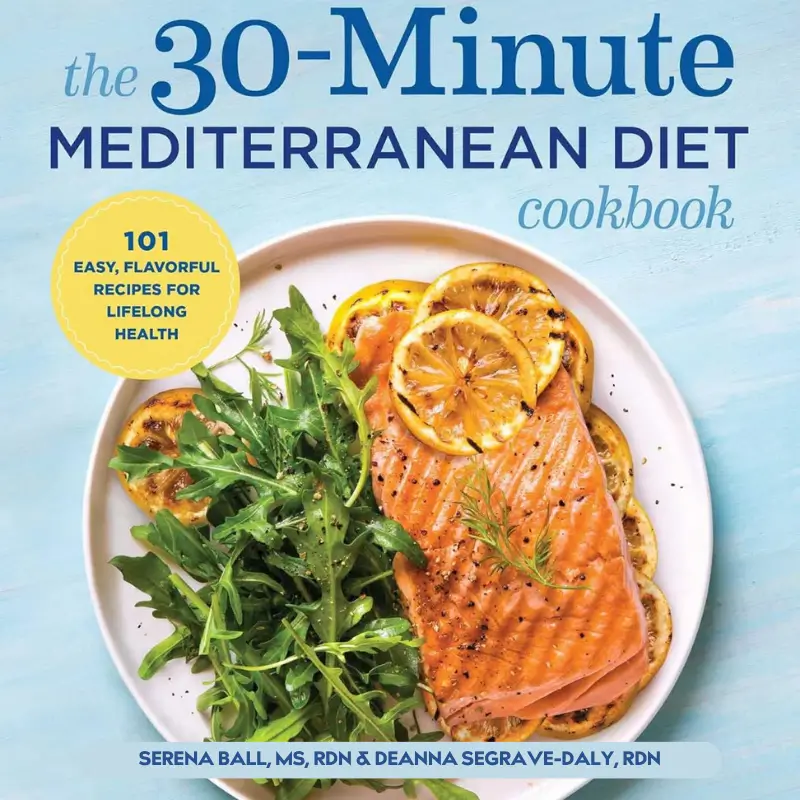
The 30-Minute Mediterranean Diet Cookbook
101 Easy, Flavorful Recipes for Lifelong Health.
Conclusion
Take a moment and think how great it would feel to win your battle with weight and achieve your body goals. We fully understand that it’s not an easy journey, but remember, nothing worthwhile ever comes without effort. These faster ways to fat loss we’ve unpacked for you are not just theoretical concepts but proven ways to stoke the fires of your metabolism and encourage your body to burn fat more efficiently.
Starting could seem daunting, you may feel overwhelmed and unsure of where and how to begin. Don’t let these feelings dismay you. Let today be the start of an exciting journey wherein you work alongside your body, nurturing it with a balanced diet, exercise, and ample rest. It doesn’t need to be perfect; it just needs to be started. Like any long but meaningful journey, it begins with a single step.
If you’ve already commenced this journey, don’t let brief moments of setback distract you from your ultimate goal. Savor your forward progress, however small it may seem. Every bit of mindful eating, every drop of hydration, every moment of stress management, it all adds up.
Remember, consistency is key. Consistently fortified with interval training, reduced intake of processed foods, and peppered with professional guidance, your path will be laden with noticeable improvements that keep you going. Continually tweak your game plan based on experience and expert advice, and you’ll find yourself becoming an unabridged version of a healthier you.
Whether you’re just setting foot on this path or you’re already on it, keep faith in your ability to do this. Believe in these faster ways to fat loss, work with them, and see them work for you. Let the unmatched satisfaction of overcoming your challenges fuel your journey. After all, you’re not just losing fat, but you’re gaining health, vitality, and confidence. So set your doubts aside, believe in your progress, and step forward towards a healthier, better you. You’ve got this!
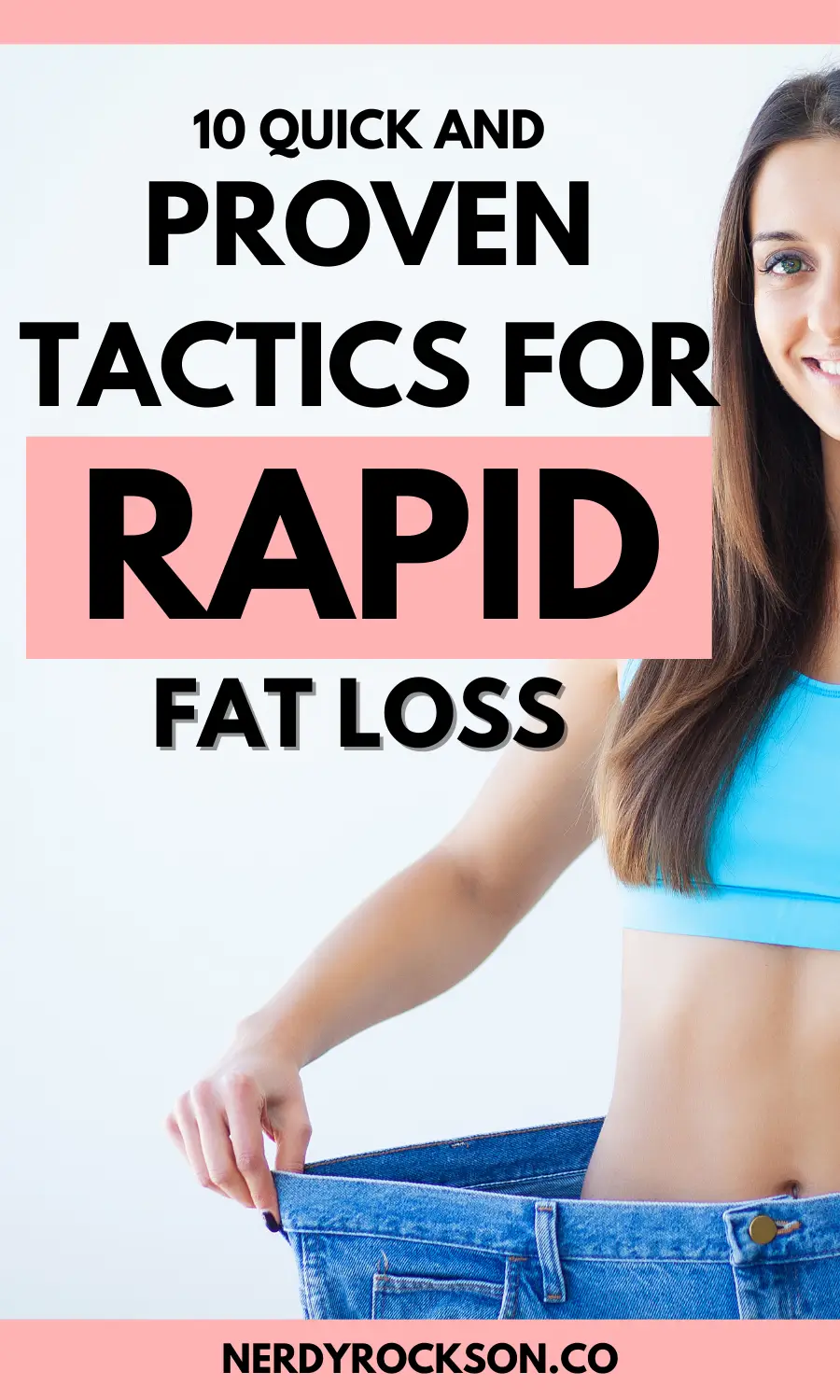

FAQ
What is the fastest way for Fat Loss?
The fastest way for fat loss is to create a calorie deficit by combining a balanced diet with regular physical exercise.
How can I speed up my fat burning fast?
To speed up fat burning fast, incorporate high-intensity interval training (HIIT) exercises into your workout routine, maintain a calorie deficit, prioritize protein-rich foods, stay hydrated, get enough sleep, and manage stress levels.
What is the FASTer Way to Fat Loss diet?
The FASTer Way to Fat Loss is a comprehensive program that combines intermittent fasting, carb cycling, and effective workouts to help individuals achieve fat loss and improve their overall health. It focuses on optimizing nutrition and fitness strategies to boost metabolism and promote sustainable weight loss.
What burns the most fat the fastest?
High-intensity interval training (HIIT) burns the most fat the fastest.
Reference
[1] ^ PubMed: Effects of low-carbohydrate diets
[2] ^ Harvard T.H. Chan: Healthy Eating Plate
[3] ^ American Medical Association: Massive study uncovers how much exercise
[4] ^ PubMed Central: Sleeping hours
[5] ^ National Library of Medicine: Mindful Eating
[6] ^ PubMed: Stress-induced cortisol
